

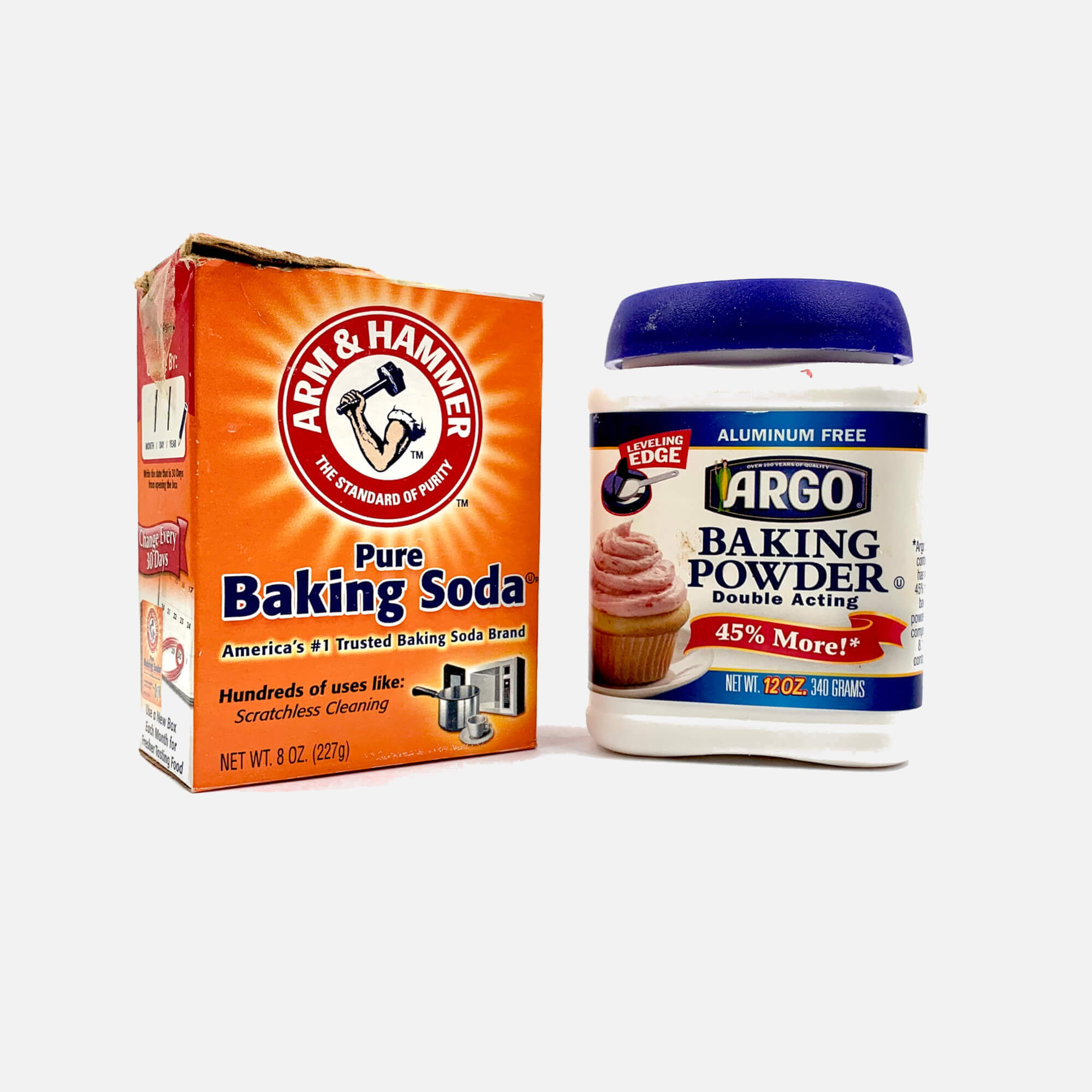
In this quick and easy experiment we're going to take a closer look at two common ingredients used for baking cakes, cookies, muffins, and other yummy foods: baking powder and baking soda. If you've always wondered what the difference was between these two ingredients, don't fret! That's what we're about to find out in a minute, and to help us figure out, we're going to use and learn some chemistry in the process. So, let's roll up our sleeves and uncover the chemistry behind baking!
Do you enjoy baking cakes and cookies? If you do, you probably know that baking soda and baking powder are important ingredients to make them delicious and airy. But did you know that baking soda and baking powder are not the same thing? They are actually very different!
Baking soda, or sodium bicarbonate (NaHCO3), is what's known in the chemistry world as a base, a kind of substance that can neutralize acids and make them less sour. Acids are substances that taste sour, like vinegar or lemon juice.
When an acid and a base meet, a chemical reaction happens that produces bubbles of a gas called carbon dioxide (CO2), the same gas we breathe out, that's found in our atmosphere, and that makes drinks like seltzer fizzy. Carbon dioxide gas is also what makes cookies, cakes, muffins, and bread rise and become soft. But how can baking powder have an acid and a base together without producing gas right away? Well, the acid in baking powder is cleverly hidden inside a coating that only dissolves when it gets wet. That way, the acid and the base stay apart until you add water or milk to your batter.
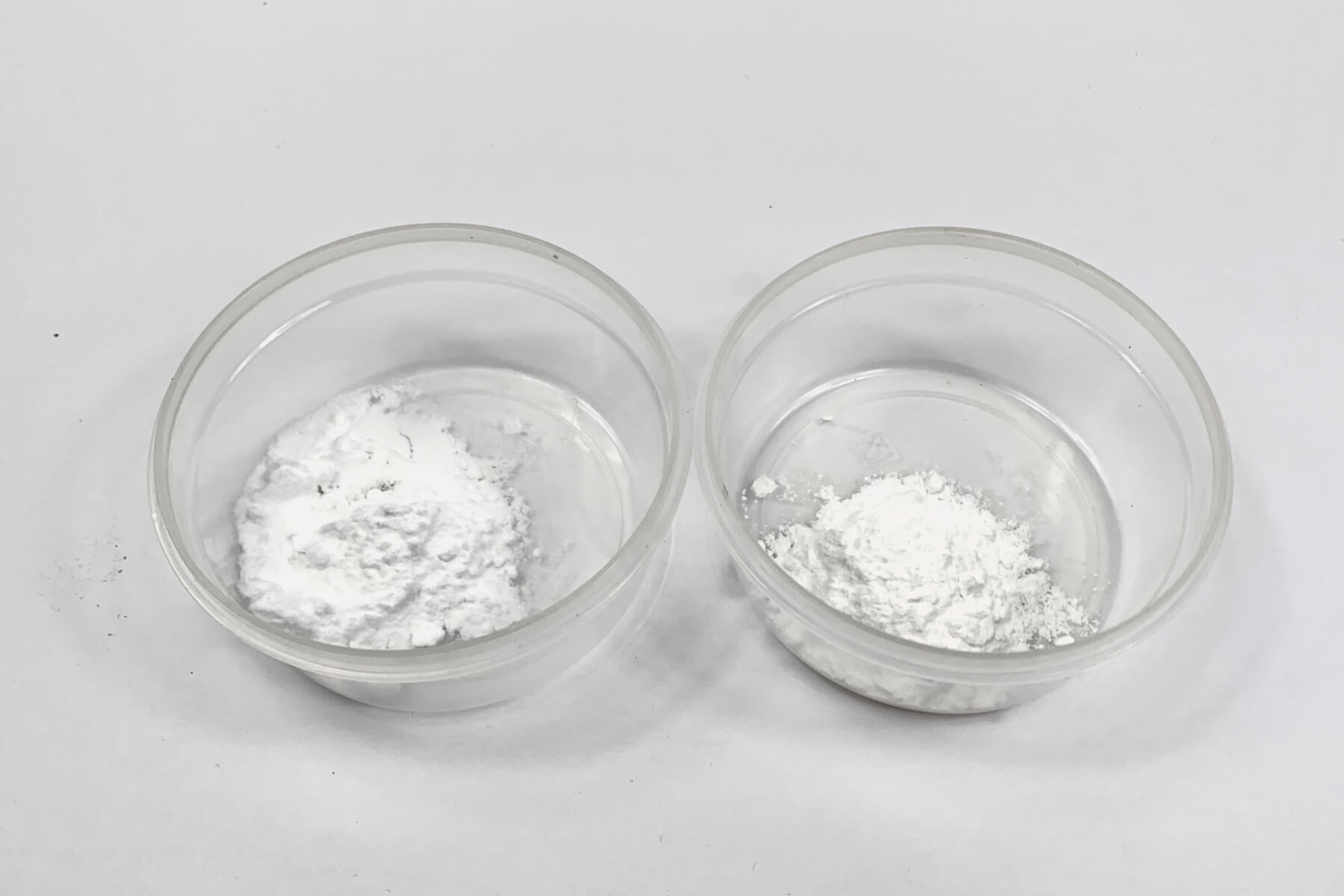
Using the spoon, place a spoonful of baking powder into one container and a spoonful of baking soda into the other.
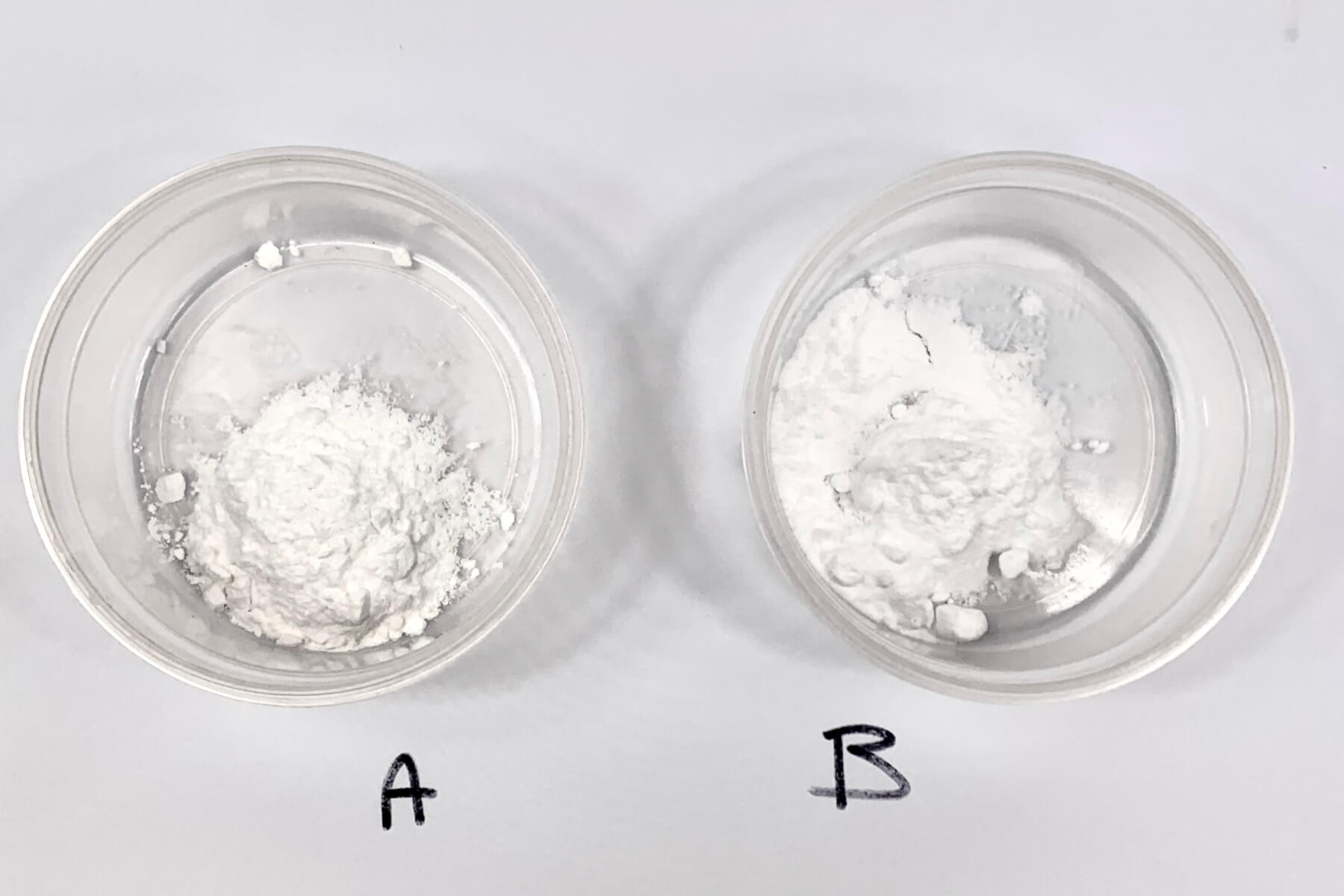
Close your eyes and and ask a labmate to shuffle the two containers until you don't know which contains baking soda and which contains baking powder. It's a good idea to label each dish, so you don't get the mixed up.
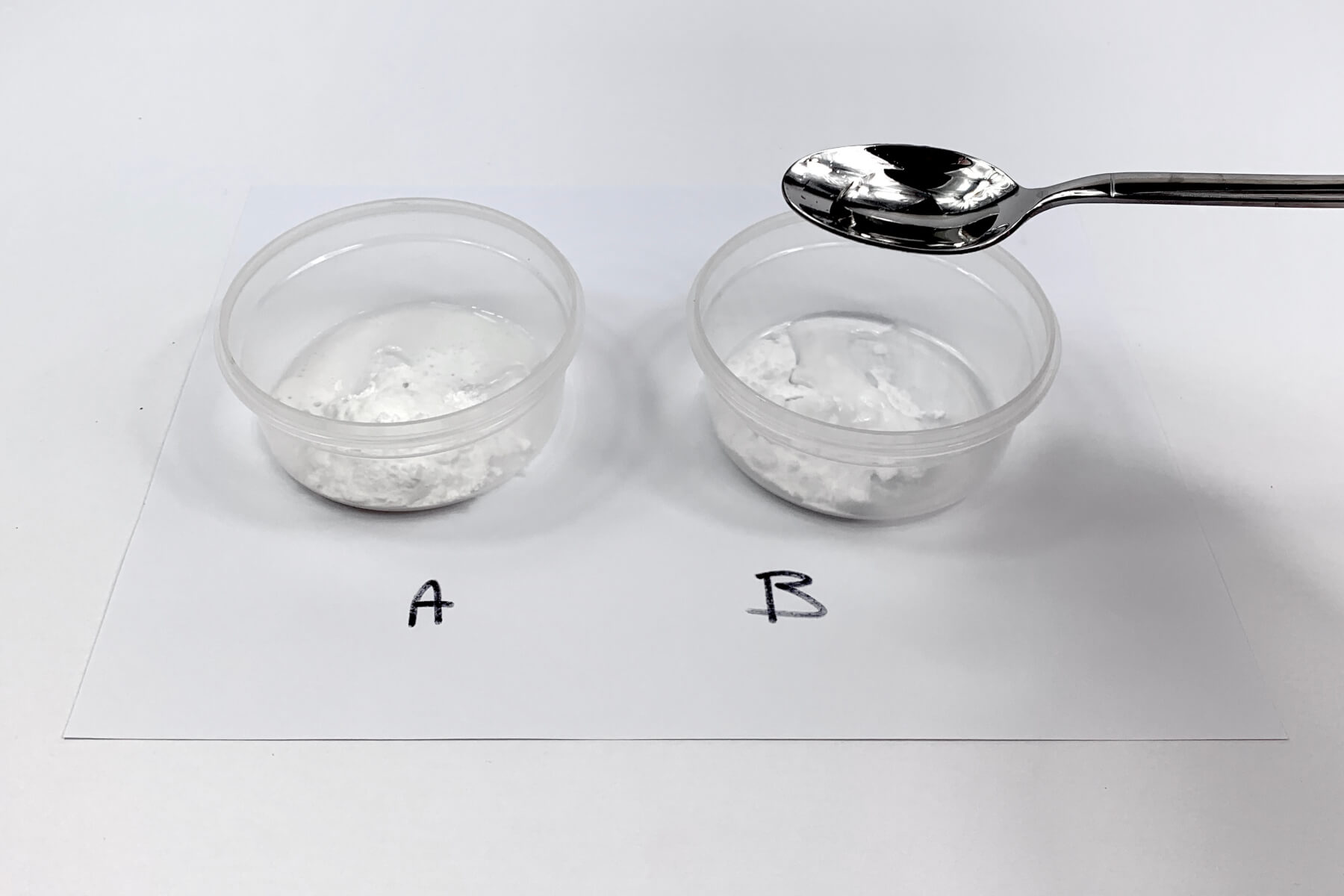
Using the spoon, scoop a small amount of water into each container. Wait a few seconds and then observe each container. You should be able to see that one mixture is reacting and the other isn't.
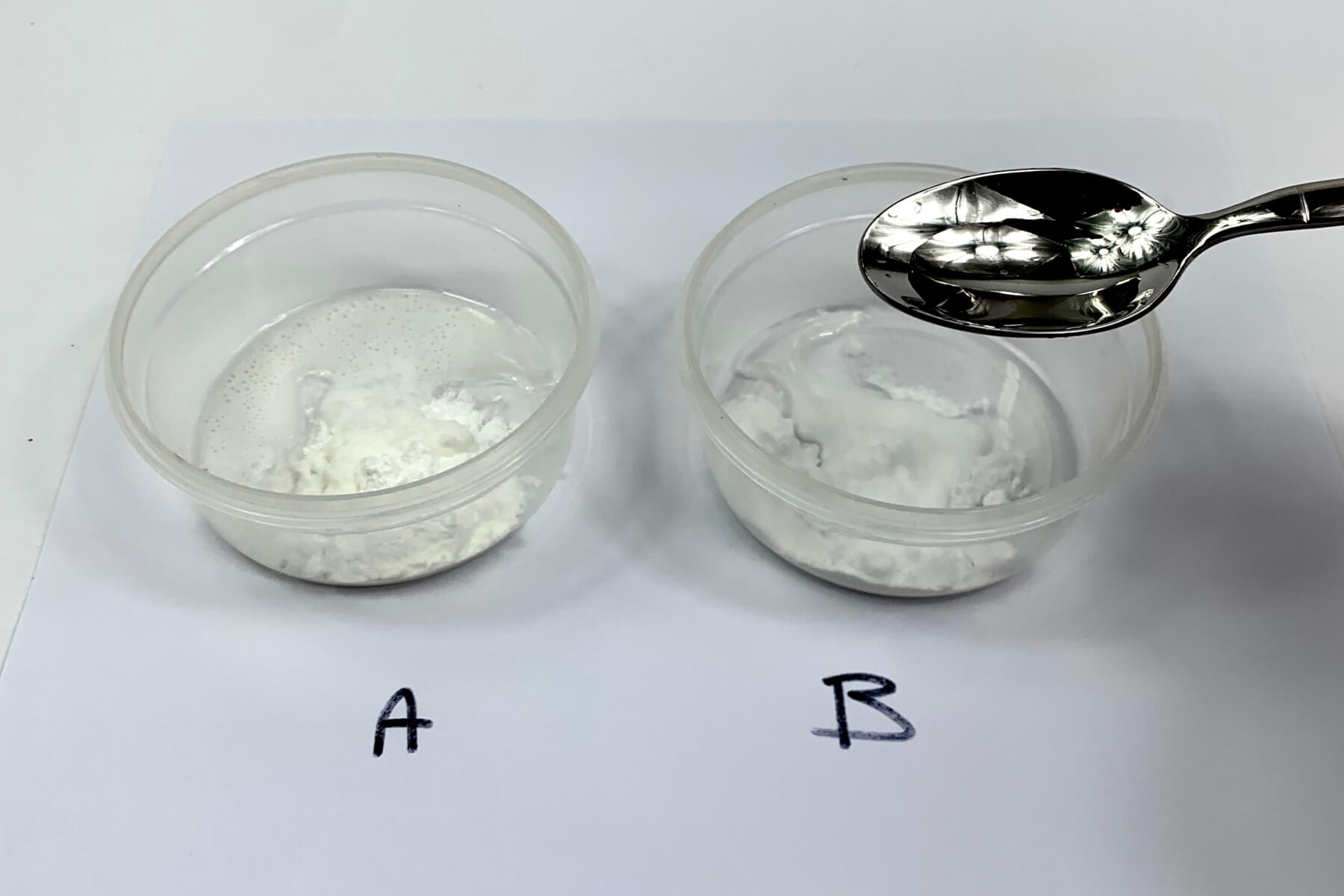
Now, repeat step 3, but this time with vinegar instead of water. You should now see both mixtures reacting. Can you figure out which container holds the baking powder and which container holds the baking soda?
You must be logged in to comment.